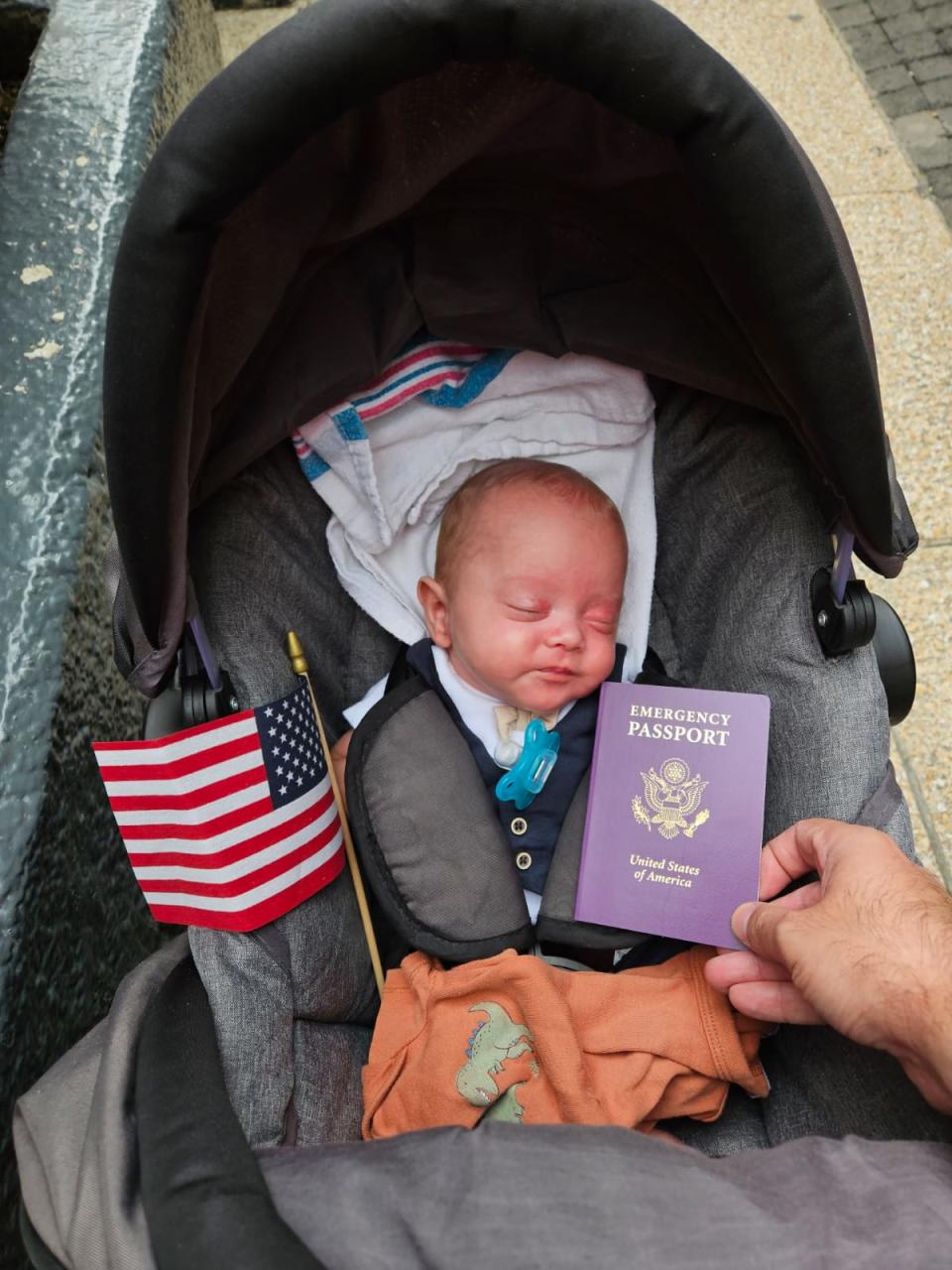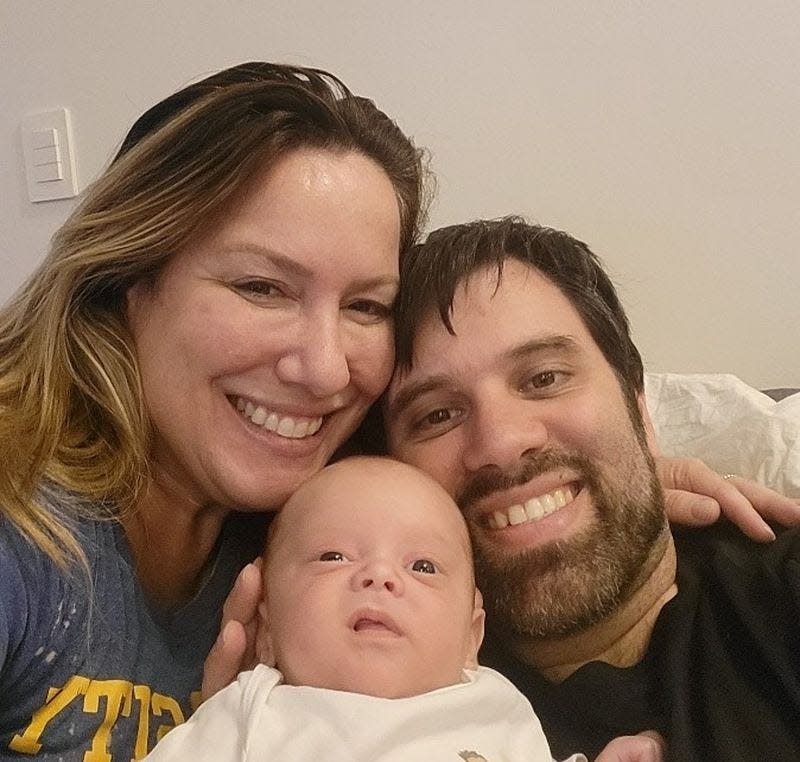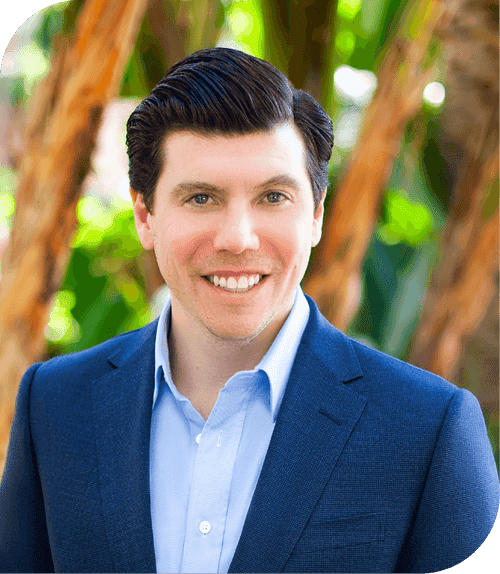Freehold couple's baby, stuck in Mexico for months, arrives in U.S.
FREEHOLD BOROUGH – Simon Kaitz is finally home.
And the two-month-old can thank a New York fertility doctor, a Mexican attorney and Linkedin for playing a part in his arrival in the United States.
“We are going to celebrate, he is meeting everyone in his family who has held out hope to meet him,” said Laura Kaitz, Simon’s mother. “We can’t wait to show him around.”

Laura Kaitz and her husband, Sam, have been waiting more than two months to bring their child to their Freehold home.
That’s how long Simon and Sam Kaitz have been stuck in Mexico, where Simon was born via a surrogate, and has faced legal blockades from Mexican authorities and the U.S. Embassy for weeks. But the pair landed in Newark Thursday night after an emergency passport was secured.
More: Freehold couple struggles to bring baby born to surrogate back from Mexico
“It has been a mess,” Mr. Kaitz said Thursday, just hours before boarding a Delta Airlines flight with his son to the United States. “It has been so stressful. It feels like we were alone.”
The issues began soon after Simon was born on April 18 via a paid Mexican surrogate who was implanted with an embryo created from Mr. Kaitz’s sperm and a donor’s egg.
The Kaitzs paid $60,000 to a Mexico City surrogacy agency. Such procedures can cost three times as much in the United States, experts said.

Problems arose when the birth certificate issued by Mexico was deemed invalid, denying the couple a passport for their child. They also lacked DNA evidence that the U.S. Embassy would accept, Mr. Kaitz said.
The couple blamed the surrogacy agency, Surrogacy Mexico, for failing to guide them and provide proper legal support. The agency has not responded to requests for comment.
“They gave us no options, said go back to your lawyers and get a proper birth certificate,” Ms. Kaitz said about the agency last week. “They wanted to see the surrogacy agreement signed by all parties and we provided them with that and a DNA test that shows Sam is the father.”
Still, nothing was done.
The Kaitzs then reached out for help.
The couple said after their story first appeared in the Asbury Park Press on June 27, things began to loosen up. They said people reached out with offers to help and seek guidance.
Among those was Dr. Brian Levine, a fertility expert in New York City who also operates a low-cost surrogacy agency seeking to help would-be parents cut costs.

“When I read this story I could not unsee it,” said Levine, who first saw it online last weekend. “I had never met these people but I believe in paying it forward. If I could figure out a way to help them I would.”
He said he could not find the Kaitzs and eventually tracked down Sam Kaitz via a LinkedIn search.
Levine then began contacting his patients and former patients who live in Mexico to see if any could help. He said one of those contacts put him in touch with a Mexican attorney who reviewed the Kaitz’s situation and helped them get the case of the birth certificate’s validity before a judge.
On Tuesday, Simon’s birth certificate was deemed to be valid after a DNA test showed Sam Kaitz was his father. A passport was issued Wednesday evening and the father and son booked a flight for the next day.
“I’m so happy, I was stressed for a few days. I was not able to eat much,” Mr. Kaitz said about the last few days. “It is a relief.”
His wife, who has two older children from a previous marriage, agreed.
“I cried all day yesterday,” she said Thursday morning. “It was such a relief. I am relieved for my husband. He has not been in the United States since April.”
Mexican surrogacy has grown in recent years, according to experts, who point out it’s often one-third the cost of seeking a United States surrogate.
But U.S. officials have regularly warned potential surrogate parents against doing business in Mexico given the lack of oversight in that country and the potential problems that can arise.
“Although surrogacy agencies/clinics claim surrogacy is legal in Mexico and actively promote Mexico as a destination for international commercial surrogacy, there is no legal framework for foreigners or same-sex couples to pursue surrogacy in Mexico,” a 2021 notice on the U.S. Mexico Embassy website states. “As a result, surrogacy agreements between foreign or same-sex intending parents and gestational mothers are not enforced by Mexican courts.”
It later notes, “If you decide to pursue parenthood in Mexico via assisted reproductive technology (ART) with a gestational mother, be prepared for long and unexpected delays in documenting your child’s citizenship.”
Levine and the Kaitzs said potential parents need to be warned that undergoing surrogacy overseas is a challenge and can be fraught with roadblocks.
“It is devoid of all of the protections of our legal system," Levine said.
He said his start-up agency, Nodal, seeks to reduce the cost of U.S. surrogates and make it easier for parents to find a surrogate without spending tens of thousands of dollars.
“Surrogacy in this country is opaque, it is poorly understood,” Levine said. “Hopefully people will know this is a cautionary tale with a happy ending.”
Joe Strupp is an award-winning journalist with 30 years’ experience who covers education and several local communities for APP.com and the Asbury Park Press. He is also the author of three books, including Killing Journalism on the state of the news media, and an adjunct media professor at Rutgers University and Fairleigh Dickinson University. Reach him at jstrupp@gannettnj.com and at 732-413-3840. Follow him on Twitter at @joestrupp
This article originally appeared on Asbury Park Press: Freehold couple's baby, stuck in Mexico for months, arrives in U.S.

